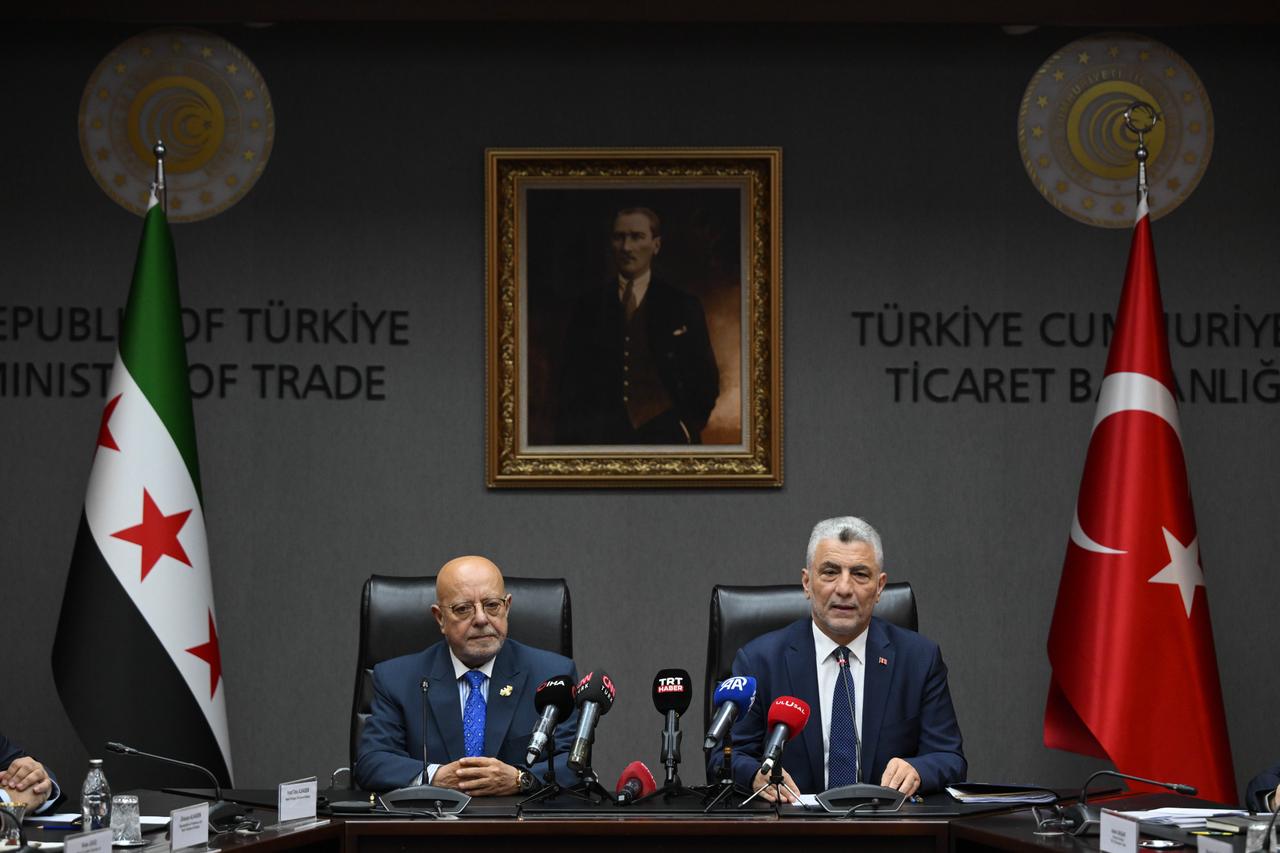
Trade Minister Omer Bolat announced Tuesday that Türkiye has proposed establishing a new generation comprehensive economic partnership agreement with Syria as the two countries signed a protocol to create a Joint Economic and Trade Committee.
"We have made a proposal to them regarding the establishment of a new generation comprehensive economic partnership agreement that aims at the integration of our country's and Syria's economies and will be a reference for our region," Bolat said during the signing ceremony at the Trade Ministry.
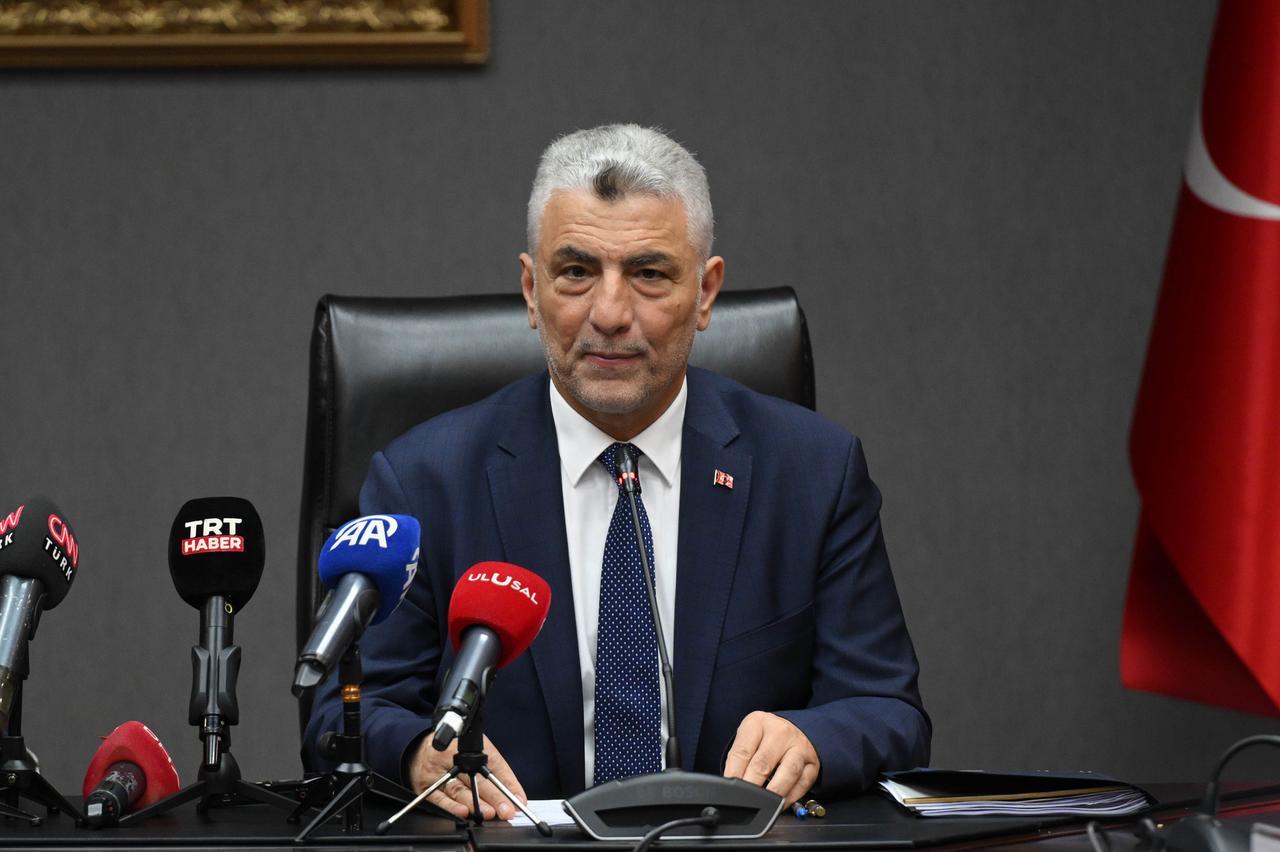
The Türkiye-Syria Joint Economic and Trade Committee (JETCO) founding protocol signing ceremony was held at the ministry and attended by Trade Minister Bolat and Syrian Economy and Industry Minister Nidal Shaar. The event also included the signing of a Memorandum of Understanding on Cooperation in Administrative Development and Governance.
Bolat noted that Shaar was Syria's first official guest in the economy and industry field, adding that the visiting minister would conduct official contacts with Vice President Cevdet Yilmaz and the Ministry of Industry and Technology, inspect organized industrial zones, and meet with business people in Istanbul.
Bolat pointed to the contribution that a strong and resilient Syrian administration and economy would make to the stability of the entire region, especially the Syrian people.
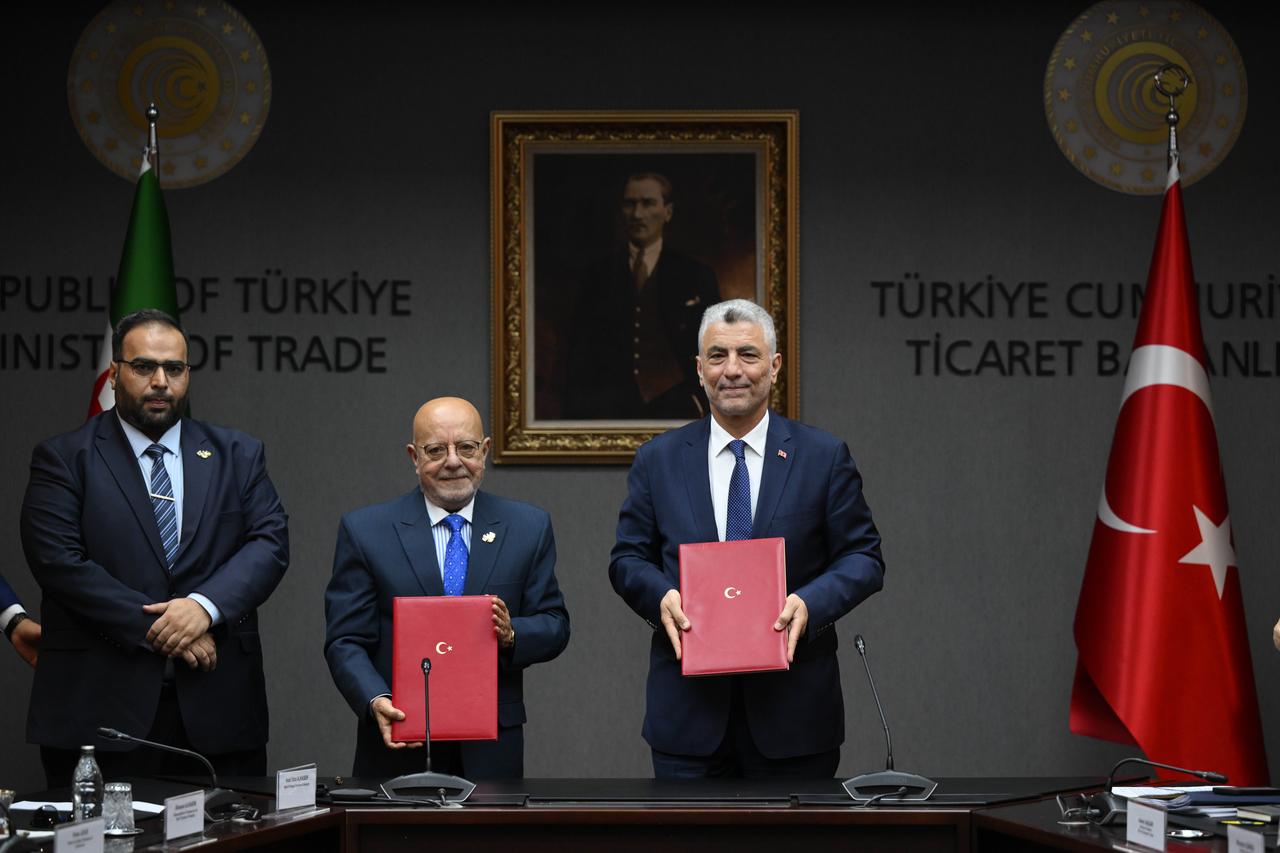
Expressing that this visit was a very important signal flare for the vision of a strengthened economic partnership, Bolat continued his remarks as follows: "A positive atmosphere prevails in our economic relations with Syria in the new period as well. Our trade was $2.6 billion in 2024. In the first seven months of this year, we reached a mutual trade volume of $1.9 billion."
"I would like to especially thank both them and my Syrian counterpart and ministry officials for the favor shown by Syrian businessmen and businesswomen toward trade with Türkiye," he added.
Bolat said they made proposals to replace the free trade agreement previously signed between Türkiye and Syria, which effectively ceased to function after 2011, with a much more comprehensive economic partnership agreement.
"From now on, our economic cooperation efforts will accelerate on the basis of this JETCO agreement," he added.
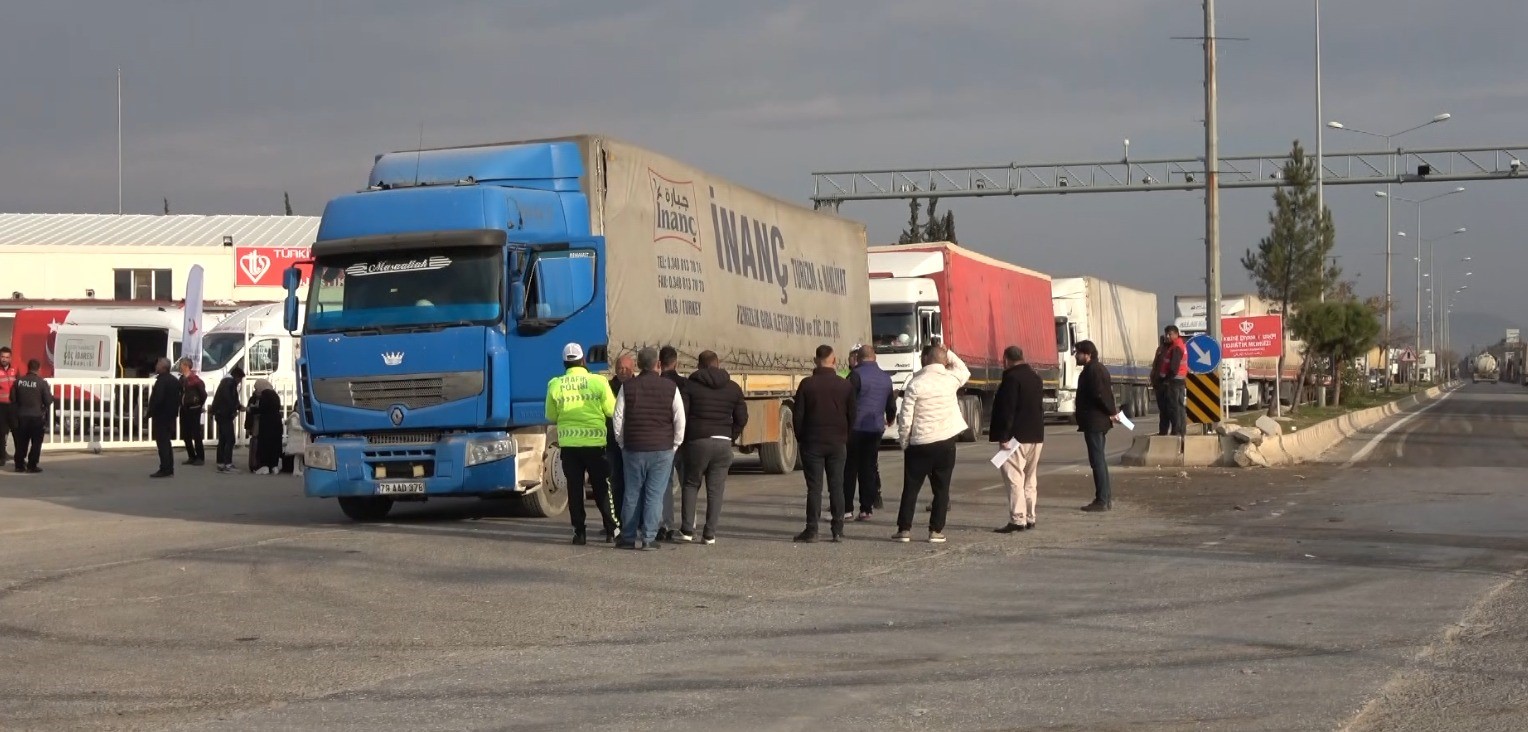
Bolat stated they would continue comprehensive consultations for customs regime applications and transportation activities, noting: "We also made a proposal to them to establish a joint customs committee on this matter. Modernization and expansion work continues at full speed at our seven customs gates currently active between Türkiye and Syria to meet the increasing passenger and trade traffic."
Recalling that the Türkiye-Syria natural gas pipeline was opened last week, Bolat noted that a 1,200-megawatt power plant would become operational with natural gas and improvement would be achieved in electricity for nearly 5 million Syrian households.
Bolat announced significant improvements in cross-border transportation and logistics infrastructure that will facilitate trade between the two countries.
"From now on, our trucks will not carry out transshipment or trailer exchange at the Syrian border. In the coming period, Aleppo will become a strong logistics base. Syria's transportation corridors will become active again," Bolat said during the Türkiye-Syria Round Table Meeting.
The meeting was held at TOBB Twin Towers with participation from Bolat, Syrian Economy and Industry Minister Shaar, and Türkiye Chambers and Commodity Exchanges Union President Rifat Hisarciklioglu.
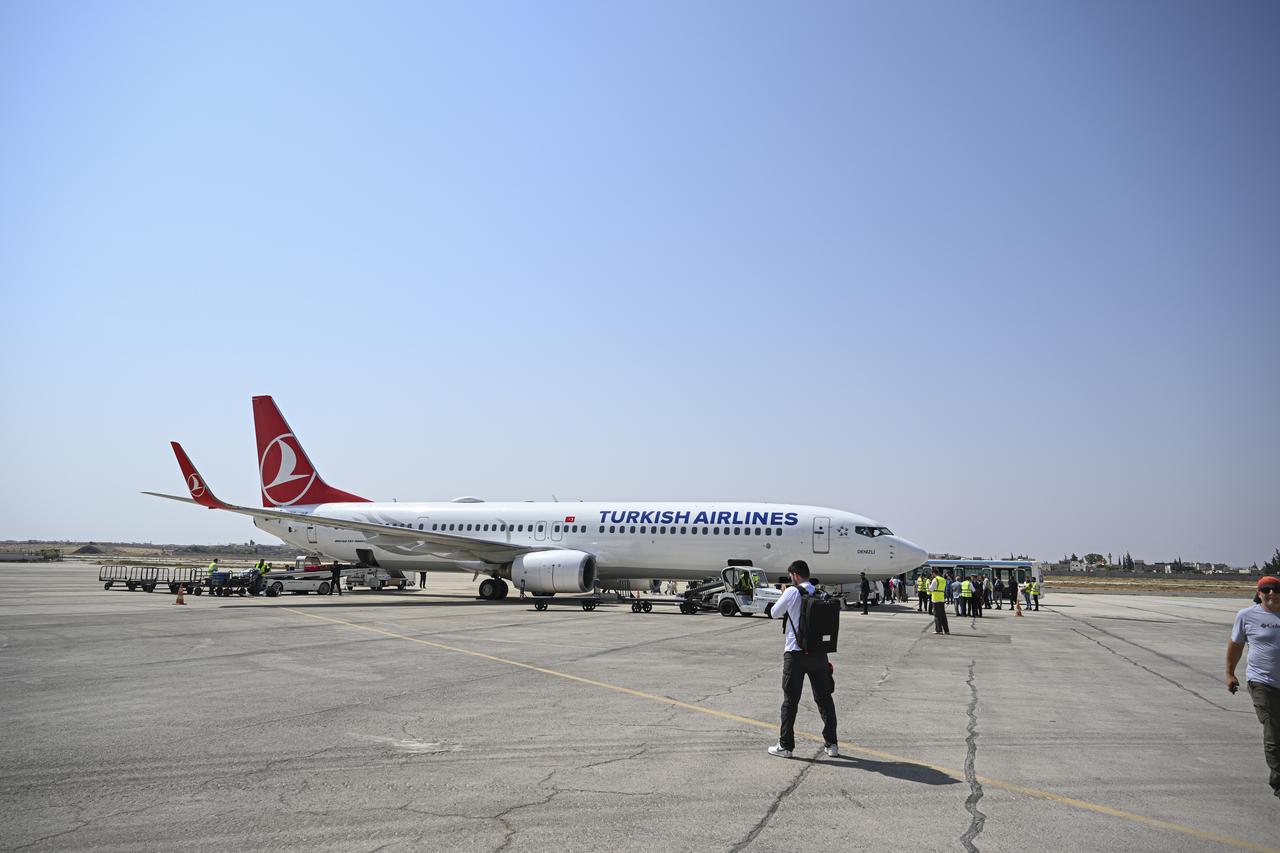
The trade minister detailed ongoing modernization efforts at border crossings to handle increased passenger and trade traffic.
"We are taking modernization steps that facilitate border crossings, accelerate trade and increase security, and we are improving our customs gates' opening to Syria. We are also strengthening our logistics capabilities by air," Bolat said.
He noted that modernization and expansion work continues at full speed at the seven customs gates currently active between Türkiye and Syria.
Bolat referenced last week's opening of the Türkiye-Syria natural gas pipeline, which has a daily capacity of 6 million cubic meters and will meet the electricity needs of 5 million households.
"With the joint energy and electricity plant projects to be realized in the coming period, we believe that cooperation that will set an example for the whole world will be developed," he added.
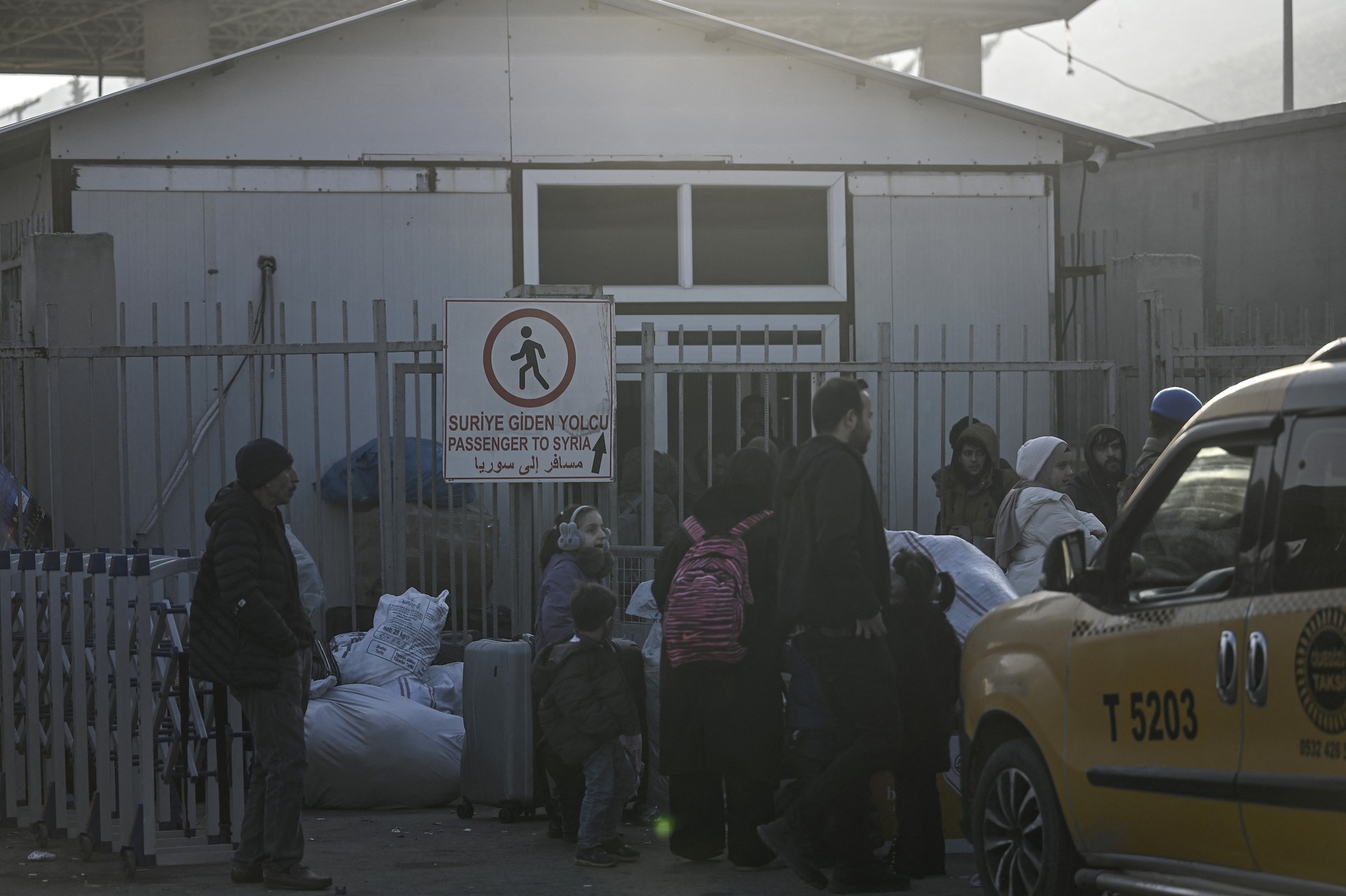
Shaar stated that relations between Ankara and Damascus are deeply rooted in history, and that the two countries cannot be separated due to their geographic proximity.
Pointing out that Türkiye was a second homeland for them, Shaar said: "We want the economy to embrace everyone by making joint production with Türkiye, conducting our markets in integration, making mutual investments. We see Türkiye as a strategic partner."
Speaking at the Türkiye-Syria Round Table Meeting, Shaar expressed confidence in the Turkish economy and business people, stating: "Türkiye transformed into one of the world's largest economies within 20 years."
Emphasizing they would continue relations based on mutual respect and sincerity with Türkiye, and that destiny required this, Shaar said: "No state can do more for each other than what Türkiye and Syria do for each other. We must realize this for future generations. Partnership should be achieved in everything. We should extend to cultural, social, economic, industrial and production areas. Türkiye's experience is an experience we describe as a miracle for us."
While other countries' successes are mentioned, Shaar stressed that what Türkiye achieved was greater, adding: "Türkiye transformed into one of the world's largest economies within 20 years, and this is not easy."
Noting that his country truly sees Türkiye as an example, Shaar expressed their desire to be partners.
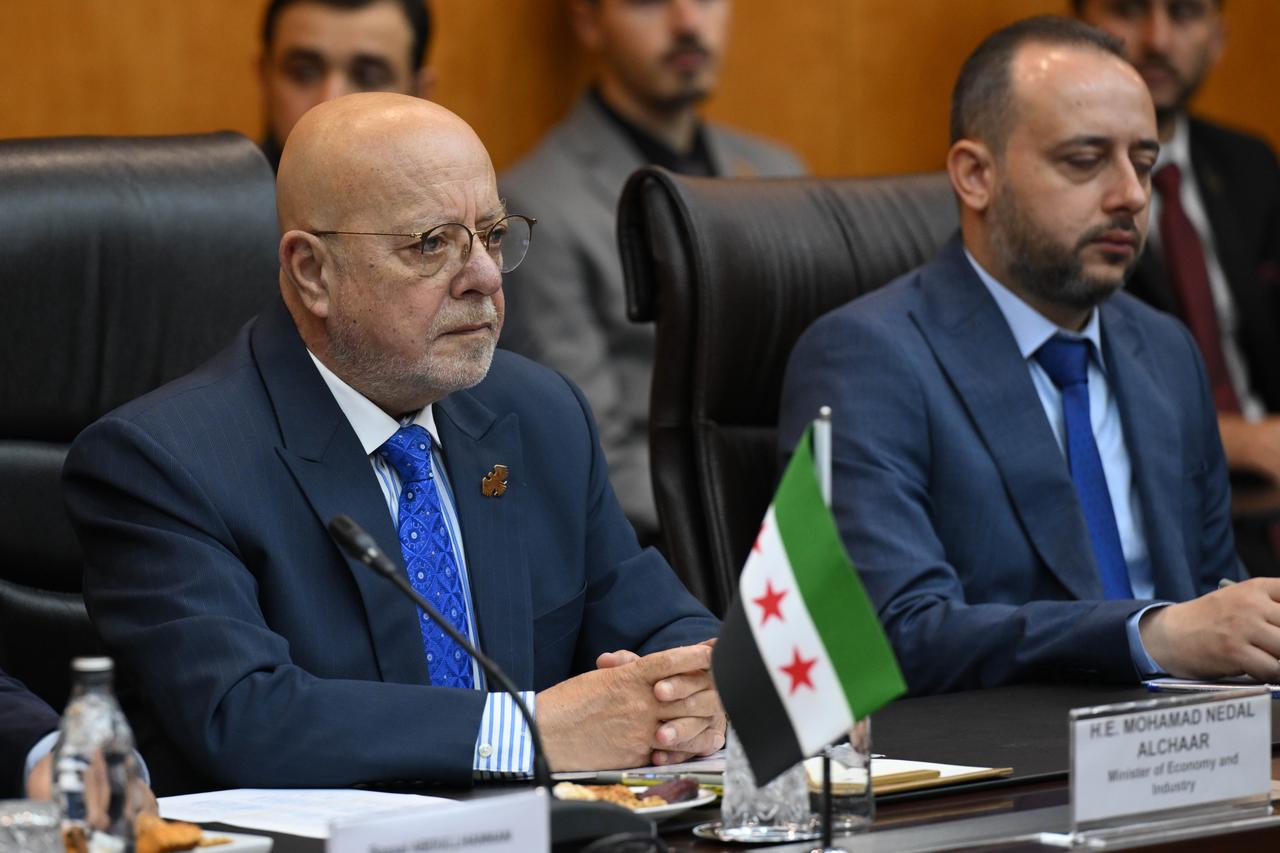
Explaining they would start with small and medium-sized companies and move on to large projects, Shaar said: "We trust the Turkish economy and Turkish business people. We especially trust their experience in the investment field."
Drawing attention to the fact that the two countries have a common border and this should be utilized, Shaar underlined that Syria is currently preparing for Turkish investors.
Shaar conveyed they hoped Türkiye would establish factories in Syria and export industrial products through Syria, stating that some products necessary for production are already available.
Emphasizing that the Turkish side would undoubtedly constitute a real driving force for investments, Shaar noted they would visit organized industrial zones in Türkiye and benefit from their experiences and successful examples.
Expressing that there was an interruption in relations for approximately 15 years but they would come together again to rebuild Syria, Shaar emphasized that relations and partnership between the two countries would be re-rooted: "This partnership of ours is definite and a requirement of destiny. Therefore, we will be together."
Bolat announced that the Türkiye-Syria Business Council will be reestablished, with the founding agreement to be signed between Turkish and Syrian business organizations at the Foreign Economic Relations Board (DEIK).
"Our Turkish banks are also preparing to start operations in Syria in the short term. Turkish entrepreneurs are eager to take an active role in Syria's reconstruction and development, in infrastructure and superstructure, in social housing," he said.
The minister noted that mutual discussions between business world organizations and entrepreneurs are accelerating in both Syria and Türkiye regarding reconstruction projects.